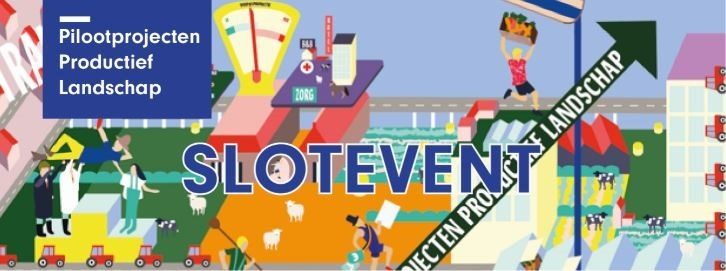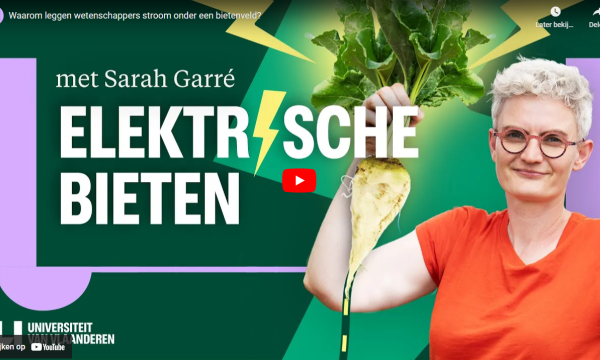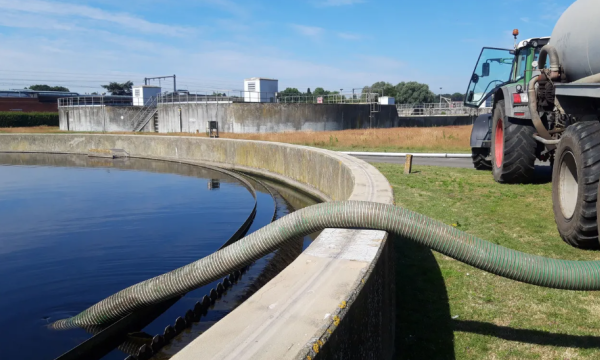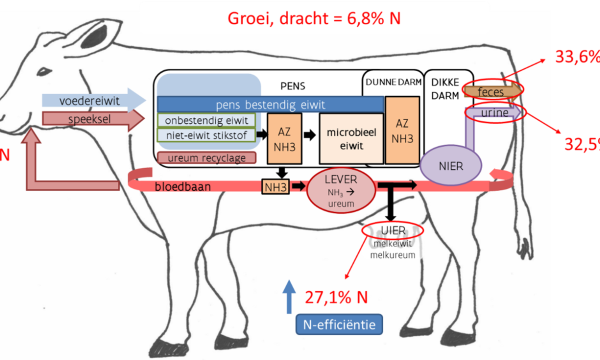Press release Lessons learned from 5 years of Pilot Projects for a Productive Landscape (PPPL)

A productive landscape with sustainable food production requires investments in blue climate services, transformation supervision for farmers, food directors who have time and space to actively work on open space projects and their food story, a framework for agricultural re-use and the use of urban space as a productive space. This is what the initiators conclude in a manifesto after 5 years of Pilot Projects for a Productive Landscape.
GOAL
In that process ILVO, the Flemish Government Architect, the Flemish Department of the Environment and the Department of Agriculture and Fisheries were looking for inspiring examples of innovative agriculture with added value for landscape and society.The target? To keep open space open and offer the farmer new perspectives as an important manager of the landscape. The focus was on 5 current spatial challenges: farm re-use, water, leaps of scale, closing cycles and urban agricultural parks.
Manifesto of the Productive Landscape: five recommendations
These lessons were converted into a manifesto with five recommendations by the partners ILVO, Team of Flanders Architect, and the Flemish Departments of the Environment and Agriculture and Fisheries. According to that manifesto, a productive landscape with sustainable food production requires:
- Blue climate services: Work on blue climate services such as water collection on agricultural parcels to improve water quality and water management. Create a tailor-made framework and guidance for farmers and ensure a systemic approach so that investments in climate services are financially feasible.
- Transformation guidance: Visualize cumulative effects that exert pressure on agricultural space. Develop mechanisms that give farmers a fair chance to continue farming in a place where their agricultural activity is socially desirable. Provide independent and design guidance so that area-oriented, systemic and effective work can be made of the transition to socially desirable, sustainable and economically profitable farm management.
- A food director: Put a structural effect on (urban) open space projects and create a network of urban food directors who have time and space to actively work on open space projects and their food story. In order to give real opportunities to city-based food production in Flanders, urban development and urban peripheral development requires a more structured approach to food than is currently the case.
- Agrarian reconversion: Use the existing and future agricultural heritage as optimally as possible, also and in the first place through agriculture itself. Break the circle of non-agricultural use of farms by updating the criteria of what agriculture is and stimulate building and other agricultural conversion measures.
- Productive urban space: Urban vertical surface such as roofs offers many prospects for productive space. Facilitate multiple use of space by enabling food production on roofs and in other urban areas through regulations and embedding food in urban vision formation.
Elke Vanempten: "The agricultural sector is constantly changing, just like society does. Globalization, climate change, sustainability, urbanization and population growth are some trends that require space and have an impact on agricultural activity. The farmer must necessarily adapt continuously, but these adjustments are made more difficult because individual interests do not always correspond with collective interests and because decisions by private and public parties can limit the playing field. The recommendations in this manifesto can offer a solution for this."


